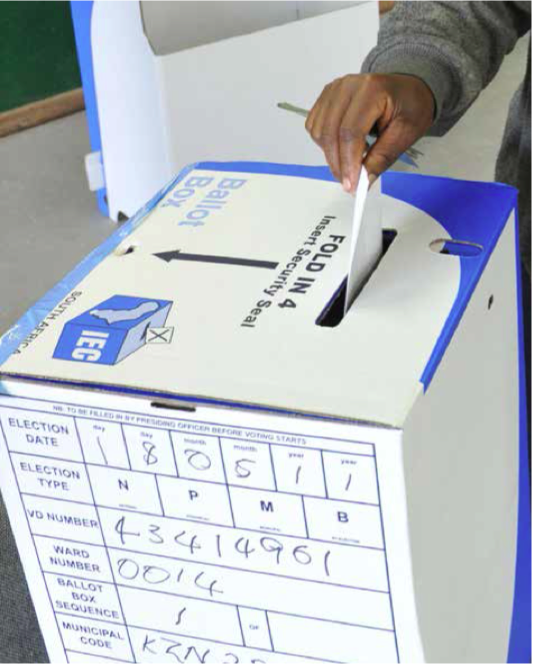SA Hosts First National Symposium to Strengthen Political Funding Laws
IEC officials stressed that broad participation is critical to ensuring that future reforms are practical, fair, and politically inclusive.

- Country:
- South Africa
The Electoral Commission of South Africa (IEC) has convened its first-ever National Symposium on Political Funding, marking a significant milestone in efforts to improve transparency, accountability, and sustainability in the country’s multiparty democratic system. The event, themed “Sustaining Multi-Party Democracy through Enhancing Political Funding Regulation in South Africa,” is being held over two days at the coastal town of Umhlanga, north of Durban.
The symposium comes on the heels of four years of implementation of the Political Party Funding Act of 2018, which took effect on 1 April 2021, and provides a pivotal opportunity to evaluate the law’s effectiveness and explore reforms aimed at better governance of political finance.
A Pioneering Initiative in Political Transparency
Opening the event, IEC Chairperson Mosotho Moepya emphasized the Commission’s commitment to enhancing electoral integrity and democratic values through robust regulation of political finance.
The symposium’s agenda is packed with critical reflections, global comparisons, and proposals for reform, led by thought leaders, public officials, and civil society. Chief Electoral Officer Sy Mamabolo presented an overview of the Commission’s experience implementing the law, outlining both achievements and systemic challenges. This included insights from the Political Funding Unit on compliance trends, donor transparency, and funding gaps in party disclosures.
Ministerial Perspective on Public Funding for Democracy
Finance Minister Enoch Godongwana, in his address on the second day, shed light on the state’s role in enabling a healthy democratic process through public funding. He underscored the importance of public financing in reducing reliance on opaque private donations, which often risk skewing policy in favor of elite interests.
“Public funding for political parties is not merely a budgetary line item,” said Godongwana. “It is an investment in political equity, inclusive participation, and the long-term legitimacy of our democracy.”
Insights from Academia and Civil Society
A notable feature of the symposium is the presentation of preliminary research findings by the Human Sciences Research Council (HSRC). The study captures a wide range of stakeholder and public perceptions on political funding, highlighting concerns about the lack of transparency in private donations, enforcement inconsistencies, and the limited capacity of political entities to comply with the Act.
Academic scholars offered comparative insights from jurisdictions such as Germany, Canada, and Brazil, showcasing effective models of campaign finance regulation, public subsidy schemes, and the role of watchdog institutions.
Key Focus Areas and Debates
Major discussion themes include:
-
The global state of political funding and campaign finance reforms.
-
The evolving mandate of South Africa’s political funding framework.
-
Stakeholder readiness and responsibility, including political parties, businesses, and donors.
-
Challenges in achieving full transparency in both public and private sources of political funding.
-
Digital tools and disclosure mechanisms that can streamline compliance and public access to party finance data.
Participation and Stakeholder Engagement
The IEC has gathered an impressive roster of participants, including:
-
Representatives from major and minor political parties
-
Members of Parliament and local legislatures
-
Scholars and researchers
-
Civil society watchdogs and democracy advocacy groups
-
Journalists and media organizations
-
Delegates from business chambers, donor institutions, and international organizations such as the UNDP, the AU, and the European Union.
IEC officials stressed that broad participation is critical to ensuring that future reforms are practical, fair, and politically inclusive.
Looking Ahead: Building a Stronger Political Finance Ecosystem
In his remarks, Sy Mamabolo called for “a collective national commitment” to enhance political funding governance, saying, “A vibrant democracy thrives on public trust. That trust depends on transparency and the assurance that money does not undermine the voice of the electorate.”
As South Africa prepares for future elections and adapts to an evolving political landscape, the symposium serves as a crucial platform to advance public dialogue, inform policy changes, and strengthen the regulatory regime that underpins democratic contestation.
ALSO READ
AJSU Party Eyes Expansion: Bihar and Bengal Elections on the Horizon
BJP's Triumph in Delhi Municipal Elections Ignites New Development Plans
LJP(RV) Asserts Dominance in Upcoming Bihar Elections
Ajit Pawar Returns to Political Battleground in Cooperative Sugar Mill Elections
Bihar on Brink of Change: Prashant Kishor and Chirag Paswan Gear Up for Assembly Elections










